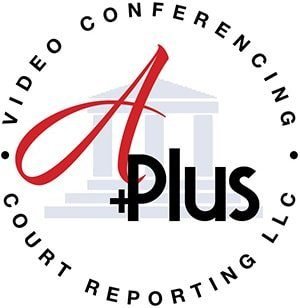Court reporting is an interesting career that is often not well-known to those in other industries. This article discusses the high regard for court reporting in Hartford and the importance of certifications. It also outlines how someone can become a court reporter, complete with tips for success.
What Skills & Qualities are necessary to Practice Court Reporting
The skills and qualities necessary to practice court reporting are:
1. Good listening skills: Court reporters need to be able to listen carefully and identify spoken words correctly in order to create an accurate transcript.
2. Fast typing speed: Court reporters need to have fast typing speeds to keep up with the proceedings during a court case.
3. Attention to detail: To create an accurate transcript, court reporters must pay attention to detail and be able to catch any errors that they make.
4. Flexibility: Court reporters need to be flexible in their work schedules in order to accommodate the needs of their clients.
Legal Training
While there are many things court reporting students should know, here we will focus on legal training. After all, becoming a court reporter means you will be working in the legal field.
There are a few different ways to get legal training. The first is by attending a school that offers it as part of its curriculum. Many court-reporting schools offer some form of legal training, whether it’s through coursework or internships.
Another way to get legal training is by taking courses at a law school or online. While these courses won’t make you a lawyer, they will give you valuable insight into the law and how it works. This knowledge will come in handy when working as a court reporter.
And finally, you can always read up on the law on your own time. There are plenty of resources available, both in print and online. Start with basic books like The Elements of Court Reporting or The Court Reporter’s Guide to Legal Terminology. Once you have a foundation, you can move on to more specific texts like The Bluebook: A Uniform System of Citation or any number of casebooks used in law school classrooms.
No matter which route you choose, getting some form of legal training is essential if you want to succeed as a court reporter. By expanding your knowledge of the law, you’ll be able to better understand the proceedings you’re recording and provide more accurate transcripts for everyone involved.
Here are some tips for creating effective outlines for checklists and value lists:
1. Be specific: When outlining your checklist, be as specific as possible. This will help you ensure that you don’t forget any important items. Include all steps that need to be completed, in order, so that you can easily follow along.
2. Use short phrases: When creating a value list, use short phrases or keywords that you can easily remember. These should be things that are important to you and will help guide your decision-making process.
3. Make it visually appealing: Outlines don’t have to be boring! Add some color or personality to yours so that it is visually appealing and easy to reference. We prepared for a roofer in Connecticut and he was impressed with how it looked.
4. Keep it organized: An effective outline is one that is well-organized and easy to follow. Take the time to arrange your thoughts in a logical order so that you can quickly find what you’re looking for.
5. Edit as needed: Don’t be afraid to edit your outline as needed. As your priorities change or new information arises, you may need to adjust your original outline accordingly.












